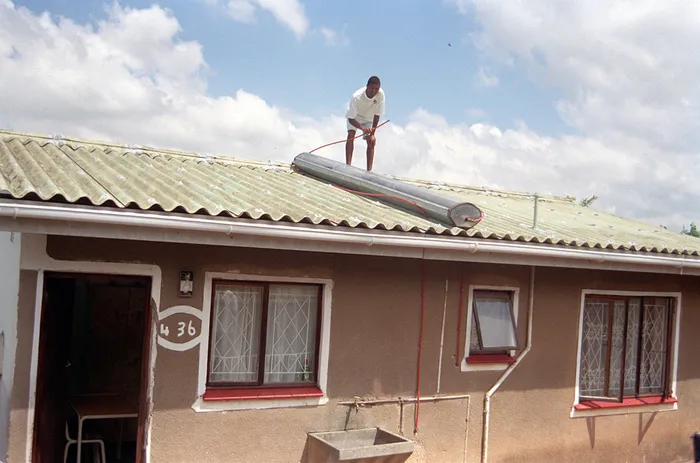Arep plans to redouble its education efforts on solar PV good practices in 2024

A solar panel fitted onto the roof of a home. File
Next year the Association for Renewable Energy Practitioners of South Africa (Arep) plans to redouble its efforts to educate various industry stakeholders on Solar Photovoltaic (PV) good practices.
The behind-the-meter non-profit quality assurance organisation aims to promote the adoption of renewable energy throughout Africa by reducing stakeholder and end-user risk and unlocking finance into the sector.
Maretia Wiggett, the Operations Director of Arep, said yesterday necessity bred innovation and had seen many innovative businessmen and women capitalising on the opportunity created by the increased levels and regularity of load-shedding.
“Unfortunately, the rapid rate of growth also has a darker side in that it has outpaced the development and implementation of standards, has created ample opportunity for fraud, and has given rise to extensive quality control challenges ranging from installation practices to the quality of solar PV system components to long term environmental concerns surrounding the recyclability of key system components like batteries and rooftop solar panels,” Wiggett said.
Arep said the solar and renewable energy industry, both locally and internationally, had grown exponentially over the past 10 years and this year had been another year of exceptional growth for it.
The organisation said it has seen a more than 20% growth in membership and a steady increase in the number of members actively participating in its monthly members meetings.
Its current membership stands at more than 2000.
Arep said it had facilitated the testing of 850 individuals over this year through its P4 Quality Assurance Program.
The program was designed to support Solar PV design and installation good practices and incorporated the most important standards and regulations applicable to Solar PV practitioners and installations including the South African National Standards as hosted by the South African Bureau of Standards, International Electrotechnical Commission standards, and NRS guidelines as produced by Eskom.
Arep said it was one of the primary driving forces behind establishing the Energy Industry Ombudsman of South Africa, which opened its doors in the second quarter of this year. Since then, the organisation has referred various complaints of possible fraud and or damages related to Solar PV malpractice to the Ombudsman for investigation and reporting.
According to the South Africa Solar PV Market Report Overview published by GlobalData at the end of October, the cumulative installed capacity for solar PV in South Africa was 7 021 MW last year. It was expected to achieve a CAGR of more than 12% during 2022-2035.
A Mordor Intelligence South Africa Solar Photovoltaic (PV) market analysis said the South Africa Solar PV market size was estimated at 5.44 gigawatt this year and was expected to reach 9.24 gigawatt by 2028, growing at a CAGR of 11.17% during the forecast period (2023-2028).
“Over the medium term, declining solar PV modules and associated system costs coupled with supportive government policies were also expected to drive the growth of the market studied. On the other hand, increasing competition from alternative renewable energy sources such as onshore wind power, small-hydropower, and bioenergy may negatively impact the market's growth and is one of the major restraints for the market.
“Nevertheless, due to increasing power outages in the country leading to the electricity crisis and increasing demand for continuous power, are expected to provide growth opportunities in the forecast period,” said the report.
BUSINESS REPORT